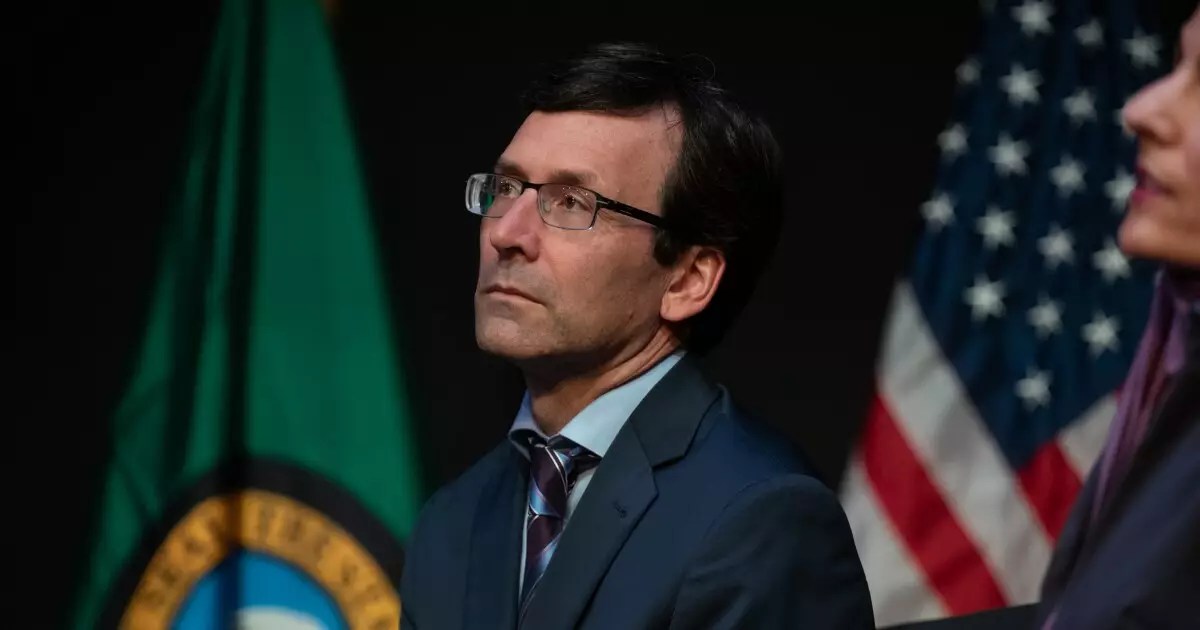In a landscape where political victories are often celebrated, Washington State’s recent budgetary progress turned out to be a passing mirage rather than a sustainable achievement. Governor Bob Ferguson’s sudden refusal to endorse the operating budgets put forth by both the House and Senate serves as a powerful reminder of the fiscal realities facing the state. This moment demands that we confront some uncomfortable truths about the financial health of our public sector. With a staggering projected deficit ballooning to $16 billion over the next four years, it’s clear that a corrective approach is urgently needed. The time for complacency has ended, and the need for practical, center-right solutions must take precedence.
Taxes: A Double-Edged Sword
At the heart of this budget showdown lies an increasing dependence on tax schemes that lack both solidity and public support. Both legislative bodies proposed a wealth tax — a bold move that, while appealing to some progressives, raises significant concerns about its viability and potential for legal challenges. Governor Ferguson’s warning about an overreliance on such a “novel” tax underscores a critical point: sustainable budgeting cannot hinge on potential revenue sources that are as likely to face court battles as they are to deliver on promised funds.
This fixation on wealth taxation, particularly within a state that already carries a substantial tax burden, constitutes a fundamental misunderstanding of the economic landscape. It’s disconcerting how lawmakers could overlook the broader implications of such tax initiatives, especially when many constituents are grappling with their financial realities. If there’s one takeaway here, it’s that heavy taxes can smother economic growth and push vulnerable populations further into hardship. That’s not just bad politics; it’s bad economics.
A Five-Alarm Fiscal Fire
Ferguson’s declaration that Washington’s budget status is a “five-alarm fire” reveals the dire straits we find ourselves in. With approximately 28% of the state budget supported by federal funds, the precarious nature of reliance on external financial assistance is painfully apparent. Cuts in federal funding threaten essential services, from healthcare to education, and it’s naive to assume these funds will remain unwavering. The critical need for a pragmatic strategy becomes clear when laid against the backdrop of hospital layoffs and other service reductions tied directly to these budgetary concerns.
It’s imperative for lawmakers to grasp the gravity of this situation. By prioritizing short-term fixes over long-term sustainability, they are jeopardizing the very foundations of public service. While Ferguson aims to protect the rainy-day fund and curb spending, the current proposals lack the necessary backbone to weather the storms ahead. It’s high time for legislators to adopt fiscal conservatism, cutting through the pie-in-the-sky rhetoric with actionable policies that prioritize stability and resilience.
Keeping an Eye on the Future
The ongoing power struggles and the urgency surrounding budget passage indicate an inherent instability in governance that could have widespread repercussions. Ferguson’s focus on preserving the state’s strong credit ratings is commendable; maintaining a triple-A rating is not just a badge of honor but a vital roadmap for future economic endeavors. A healthy bond rating means lower borrowing costs and expedited infrastructure improvements, but this hinges on disciplined financial management.
If lawmakers continue to pit cuts against taxes in a zero-sum game, they inevitably doom the state’s fiscal future. Thus, the call is for an innovative approach that leverages existing resources without compromising service quality. It’s a challenge, no doubt, but through shared sacrifice and prudent governance, we can chart a path toward secure fiscal footing without resorting to knee-jerk taxation.
The alarm has sounded, and Washington State stands at a crossroads. As we reflect on Ferguson’s stern warnings and the underlying financial dilemmas, it’s time for actionable steps that safeguard our collective future, preserving essential services without descending into fiscal recklessness. Let us hope that our lawmakers can rise to the occasion and forge a balanced path forward, one that is sustainable, responsible, and mindful of the people they serve.


Leave a Reply